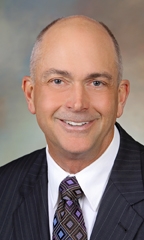
Award-winning journalist Hannah Nordhaus tells the story of migratory beekeeper John Miller of Gackle, N.D., who trucks his bees throughout much of the country to pollinate farmers' crops, including almonds in California.
She frames her story with interesting tidbits about bees, bee health, honey, research and beekeepers.
Nordhaus writes exceptionally well. Although not a beekeeper, she followed Miller around to his bee yards, beekeeping conferences and to his home in Gackle (which is about 100 miles from Bismarck).
Bees, she says, "are creatures of routine, sticklers for order. Their short lives revolve around tending and cleaning and feeding the queen and the young. Bees are single-minded. They do not ditch their queen just because they feel like it. They do not get restless and leave their young. They do not go on flights of fancy. They do not enroll in semesters abroad on a whim or grow dreadlocks or get tattoos or go on extended vacations. They do their jobs."
That's her marvelous lead-in for colony collapse disorder (CCD), the mysterious phenomenon characterized by adult bees abandoning the hive.
Nordhaus describes Miller as a guy who loves bees, spreadsheets, humor and his friends. He's descended from Nephi Ephraim Miller, a Mormon farmer known as "the father of migratory beekeeping" and the first beekeeper to produce "the nation's first million-pound crop of honey."
Miller maintains one of the biggest beekeeping operations in the country--although not quite as big as South Dakota's Richard Adee, who has 80,000 hives, Nordhaus says.
Born in 1954, Miller has a "Jimmy Stewart-like voice and an eternally bemused expression," Nordhaus writes. He doesn't cuss. He uses "cowboy words" (especially when he gets stung).
Other bee guys mentioned in her book include California queen producers Pat Heitkam of Orland and Bob and Bill Koehnen of C. H. Koehnen & Sons of Glenn. (Note: Students who enroll in bee breeder-geneticist Susan Cobey's annual instrumental insemination class at UC Davis visit these queen bee-breeding operations.)
Harry H. Laidlaw Jr. (1907-2003), also mentioned in The Beekeeper's Lament, was Cobey's mentor. The Harry H. Laidlaw Jr. Honey Bee Research Facility on Bee Biology Road at UC Davis bears his name.
Laidlaw is considered "the father of modern queen-rearing," Nordhaus points out. (Note: he's also considered "the father of bee genetics.")
"He (Laidlaw) was the pope to anybody that raises queens," Heitkam told her. "To have shaken his hand is an honor."
Yes, indeed.
Nordhaus writes as if she's chatting with John Miller in his living room and we're listening in and don't want the conversation to end. We want to hear more about the bee folks, how they feel about their bees, and what they're doing to ward off pests, pesticides, diseases and the like.
Anyone who has ever opened a hive can identify with Nordhaus' comment: "Ask any beekeeper: bees are addictive--their purposefulness, their solidarity, their endless complexity. Miller loves nothing better than the sight of a teeming frame of bees, of sealed-up honeycombs and brood heady to hatch."
"Ah," he told Nordhaus, "that's prosperity right there."
Bee folks are like that.
She got it right.
Attached Images:

Beekeeper John Miller (right, with yellow gloves and smoker) tending his hives. Copyrighted photo, 2010, by Melody Owen, used with permission.

Pat Heitkam of Orland, who operates a queen bee-rearing business, tends his hives. He is mentioned in "The Beekeeper's Lament." (Photo by Kathy Keatley Garvey)

C. F. Koehnens & Sons is one of the bee businesses mentioned in the book. Here Susan Cobey of UC Davis chats with Bob Koehnen (back to camera). (Photo by Kathy Keatley Garvey)